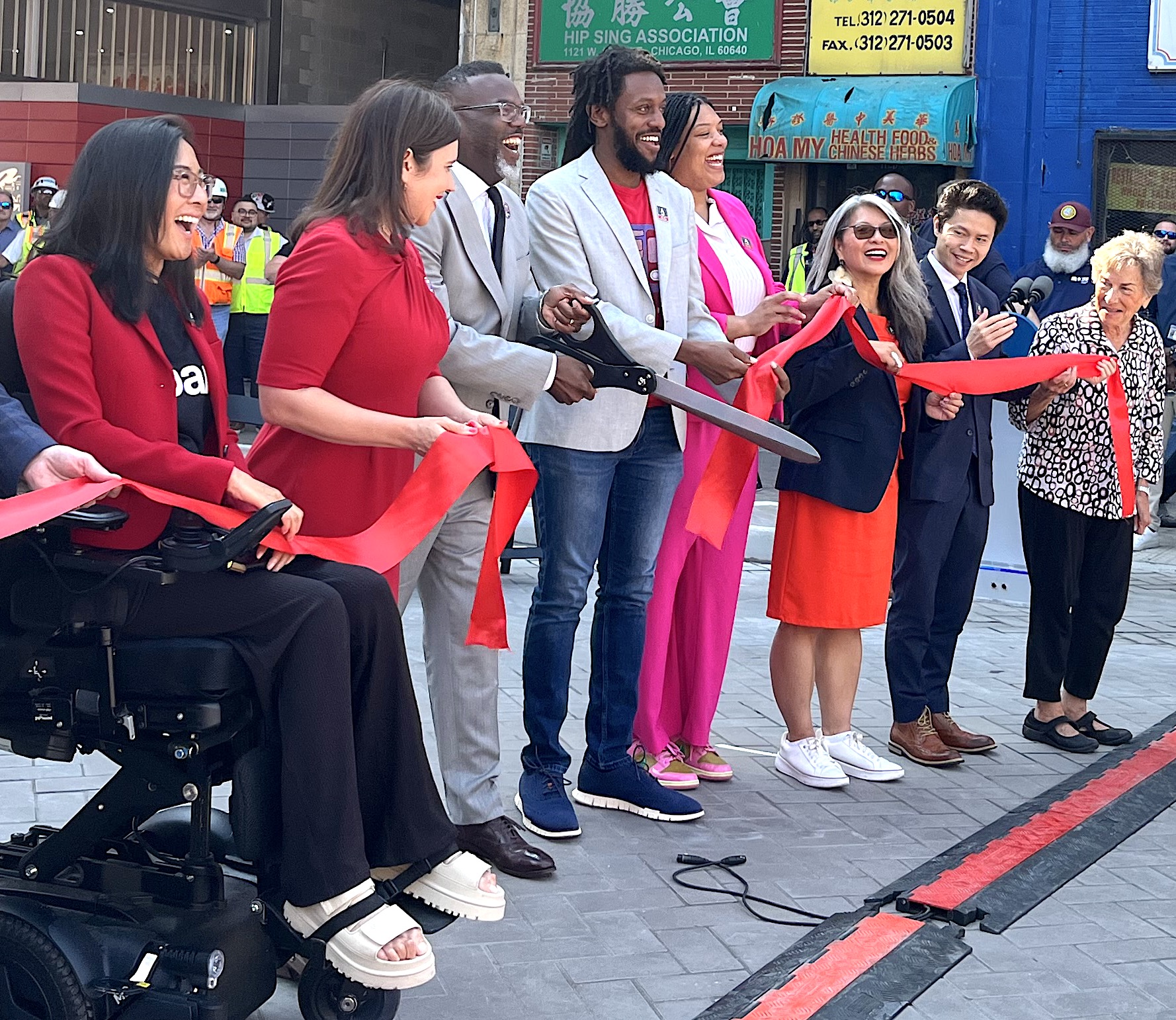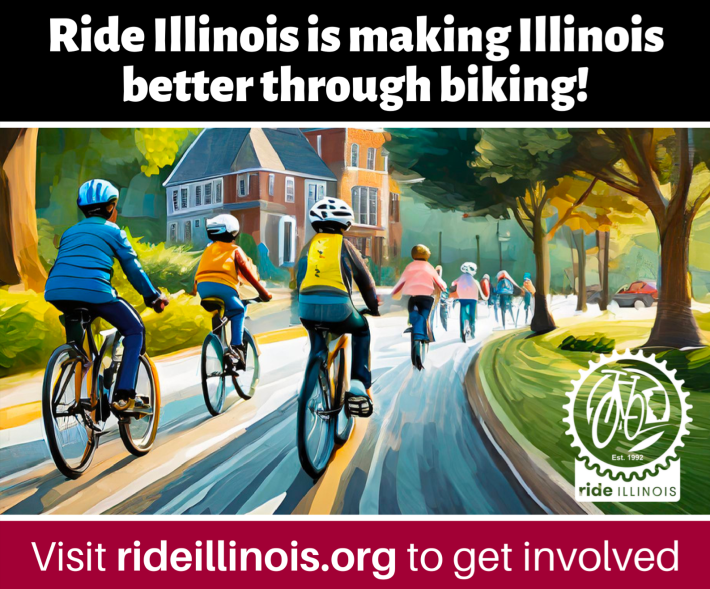
After yesterday's celebration of the five new Red Line stations in Edgewater and Uptown at the Argyle stop, I buttonholed State Sen. Mike Simmons and State Rep. Hoan Huynh (pronounced "Hahn Win") for updates on the transit fiscal cliff. The Illinois General Assembly failed to pass a public transportation funding and governance reform bill before the spring legislative session ended on May 31, so Chicagoland is now at risk of Draconian cuts next year.
In particular, I asked them, does it make sense to continue to push for $1.5 billion in new revenue to upgrade our regional transit system? Or would it make sense to settle for the $771 million immediately needed to keep the status quo from going off the rails?
The interviews have been edited for clarity and brevity.
Sen. Mike Simmons
John Greenfield: We've got to find a way to raise at least $771 million to fill the transit budget gap next year, preferably $1.5 billion to upgrade it. Now, is it brinkmanship to insist on $1.5 billion? Should we just try to keep the system as-is right now, rather than risking a Philadelphia-style situation where we have a 40 percent service cut in Chicagoland? What's your point of view on that?
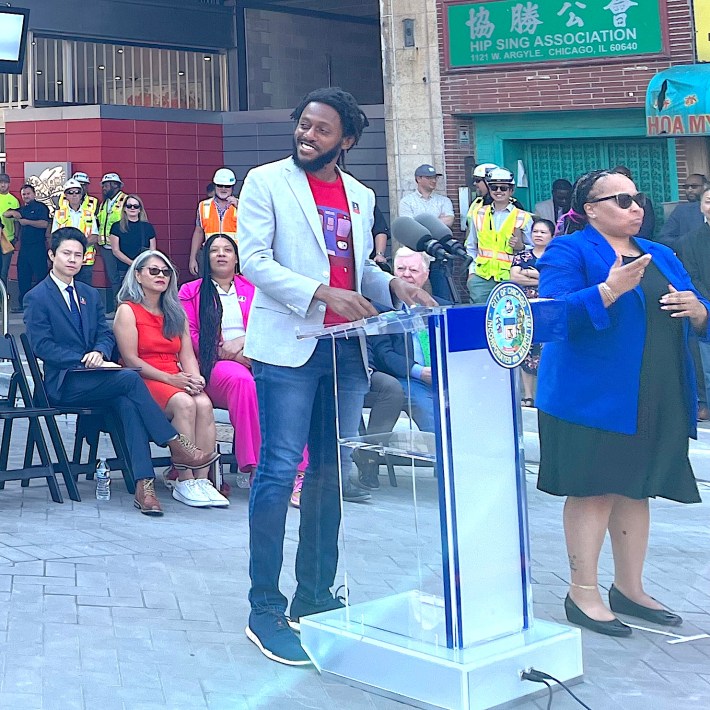
Sen. Mike Simmons: Well, cuts are untenable. I, as a progressive member of the Illinois Senate, and my progressive colleagues, have come forward with nearly two dozen progressive revenue ideas that would fully fund public transit to the tune of $1.5 billion. Anything less falls short of the moment. This investment shows that if the political courage is there, we can make this happen. And so I'm going to continue to push and fight for us to come back for a special session right now, not next week, not in October, and pass this progressive revenue so that we can fully fund our public transit.
JG: So my question is, is it a bad idea to say we need $1.5 billion, and then not pass any legislation, and have to cut some 40 percent of service and 3,000 workers? Should you just narrow your focus and say, "Hey, we gotta keep the system going as-is right now, and we'll deal with with getting more funding for transit in the future. We don't want a Philadelphia situation." What do you say to people who have that attitude, like, "You folks are risking our transit while trying to make it better. But we what if we have to cut half of our service?"
SMS: Yeah, well, cuts are untenable. I will not support any cuts to service. No cuts to wages of any of our bus and train operators. No pink slips. What we need is we need is members of the Illinois Senate and House to go back to Springfield today, this afternoon, tonight, and we need to pass the rest of revenue so that we can keep those bus operators and train operators employed, so that we can hire more, so that we can build game-changing investments like bus rapid transit and dedicated bus lanes, so that we can have more frequent, more reliable bus and train service.
That is within reach. And, as a member of the Senate Transportation Committee, we spent two years working through all the particulars. We've got all the ideas. We've done all of our homework on progressive revenue ideas, and we have all the reforms already packaged. So what's needed right now is political courage. We need our colleagues to come back and vote on this package.
JG: What are these progressive revenue ideas you have, that suburban legislators might be willing to accept?
SMS: It's politically tenable for all voters, whether they're the city or the suburbs, to say that it makes sense to boost public transit, and that may mean that some folks may have to pay a fair share of their income. So certainly taxing mega-corporations like Amazon and Facebook is a pretty straightforward proposition when we talk about investing in our public transit systems.
And there are a number of other ideas, such as taxing those who are billionaires just a little bit more so that we can get our immigrant mothers from Uptown out to places like Crystal Lake to work a second and third job where they still can't pay for basic expenses. We owe this to our to our neighbors and to our communities to boost public transit, and we can do this. It's within reach. What's needed political courage, from Democrats and Republicans.

Did you appreciate Streetsblog Chicago's reporting and advocacy on local sustainable transportation issues? If you haven't already, please consider making a tax-deductible donation here to help us continue publishing in 2026. Thanks!
Rep. Hoan Huynh
John Greenfield: So you put in a plug for transit funding in your speech today. One question I have for legislators is, the Illinois Senate voted for the $1.5 million in funding for transit...
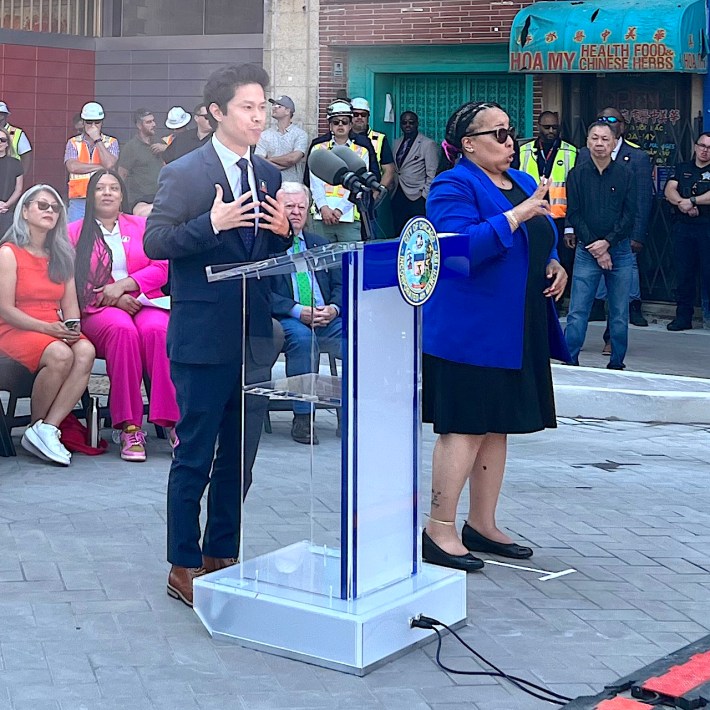
Rep. Hoan Huynh: It passed in the Senate, but it did not come over to the House until late at night. By then, there were only 15 minutes left in order for the bill to pass in the House with 60 votes. [The Illinois House has 118 representatives, so 60 votes is a little over 50 percent.] It was past midnight, so we would have to have hit the three-fifths vote threshold, 71 votes.
JG: That's going to be the case for a special emergency session this summer, right?
RHH: That will be the case with the special session or the fall veto session, we'll need 71 votes.
JG: So was there any reason not to vote for the bill after midnight if you were going to have to get 71 votes either way?
[During this interview, I forgot that Rep. Kam Buckner, a key Springfield transit advocate, told the Tribune that House members didn't have much prior notice about a $1.50 surcharge on retail and restaurant deliveries in the legislation. As such, he said, it would have been "disingenuous" and "irresponsible" to bring the bill for the vote.]
RHH: There was one bill in the Senate and one bill in the House. They were both brewing at the same time. So I think the leads in the House, Rep. Kam Buckner and Rep. Eva-Dina Delgado, were working on bills, respectively, in the House.
JG: Okay, one question I have for legislators is, the Senate passed a bill that would create $1.5 billion in funding. We need $771 million right now. Is this kind of brinkmanship, to be pushing to get more than we need right now? I mean, it would be great to improve transit, but it's gonna be horrible if we never pass legislation and the transit agencies have to cut 40 percent of service. So would it make sense to be more conservative with the amount of money that you're trying to raise, or not?
RHH: I'm on the pro-transit working group right now in the House. I'm also transportation committee in the House, and we are working right now with numerous stakeholders. We're working with Senate, working with the governor's office, working with CTA, Metra, Pace, RTA. In order for us to do this right and really make sure that we are pushing for innovation, efficiency, accessibility, we really want to make sure we hit that $1.5 billion number, that we bring back resources that are really going to rejuvenate the CTA.
And as we're seeing right now across the country, the transit in New York has gone back to pre-pandemic numbers. The transit in Washington, D.C. has gone back to pre-pandemic numbers. Chicago has not done so. So we want to make sure that we do bring back the volume of riders, and I think that requires us being very mindful about, it's not just filling in the gap. It's also being more strategic about innovation for the future, and also making sure that we build for the future as well.

JG: Okay, and what are your ideas for sustainable funding sources? It seems like getting the suburban legislators to vote for it is the most important thing if it's going to pass...
RHH: And downstate as well.
JG: We might have to write off downstate, because there are a lot of red districts, and they don't use our transit system. But we definitely need suburban legislators, as I understand it. So what kind of funding sources do you think they would be willing to accept? I think things that have been discussed have included a 50-cent toll surcharge, $1.50 for motor vehicle deliveries, and ride-hail fees. So what do you think could pass that would be equitable?
RHH: Those are all options on the table right now. That's something that we're still exploring right now in terms of, how do you find sustainable revenue? And I think if you look at the fare box right now, right we need to make sure that we don't penalize working families, middle class families, and folks who have disabilities.
I think we want to make sure that we look at making sure corporations pay a fair share. Looking at corporations that are doing business in Illinois, but they're based in the Cayman Islands. [Laughs.] Looking at other revenue enhancements like gambling enhancements from online sports betting. So those are some additional revenue that we're looking at right now to make sure that we are pushing for sustainable revenue packages.
JG: Now the CTA fare hasn't, hasn't gone up from $2.50 to ride the train since 2018, and today that amount would be worth $3.20. What do you think about doing a modest fare hike of, say, raising the 'L' price to $2.75?
RHH: We need to look at, what's the price point that can make the most sense for folks. Because we do have an issue with ridership. Folks aren't using CTA right now. Some folks feel unsafe on the CTA, so we [could address] that issue with ambassadors on the CTA. We need to make sure that there's more safety on the CTA, and we're working with the [Regional Transit Authority] and others to make sure that that's the case. But we are exploring our options.
JG: So modest fare hikes are still on the table, as far as you're concerned?
RHH: We are exploring all options, yes.
[Rep. Huynh mentions that he reads Streetsblog Chicago regularly.]
I don't have a car, so I use transit all the time. But we gotta be more innovative. You know, [state legislators took a trip to Germany to study the transit system.] It's night and day between here in Germany. Even in Berlin, they were able to get back to pre-pandemic numbers without forcing their employees to go back to the office.
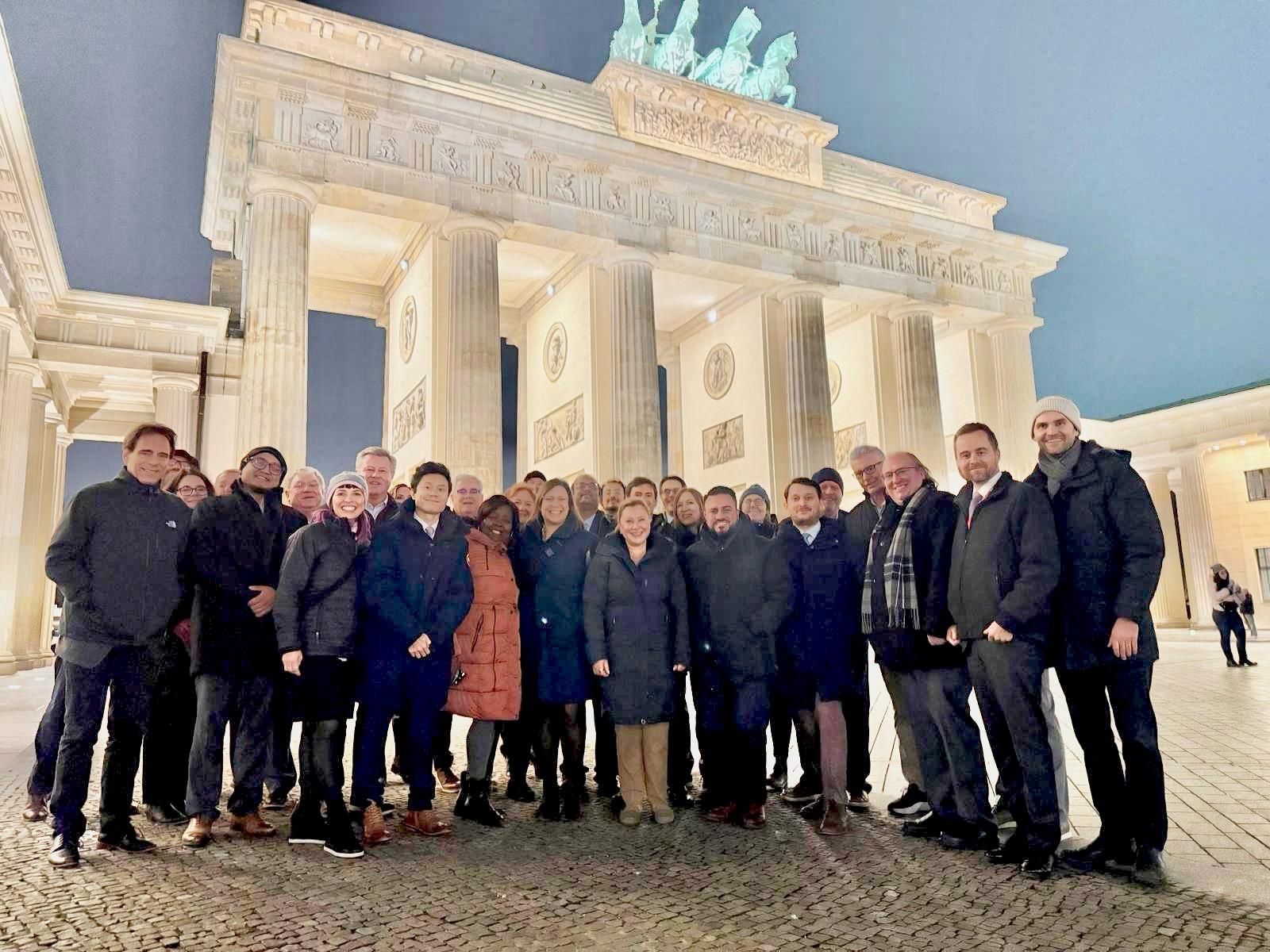
So they found different ways to do so, and I think that's something that we should be looking at as well. If folks aren't going downtown because they're working from, how do make sure they're crisscrossing throughout the city, exploring different venues, exploring restaurants and landmarks? So that's what happened in Germany. Folks, instead of going downtown, they actually went out into the suburbs and went out into the various neighborhoods and went out and explored different parts.
JG: Yeah, we need to work on creating a rapid transit grid, instead of just a hub-and-spokes system.
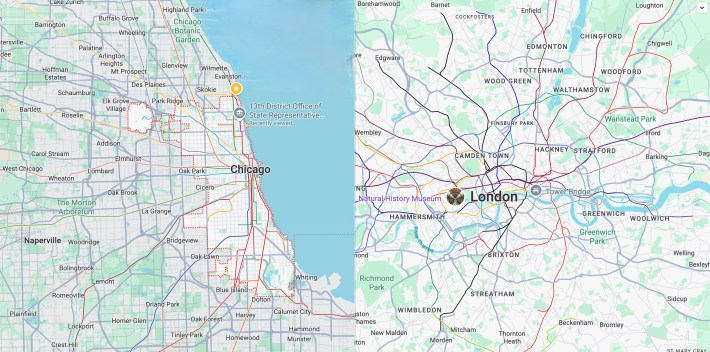
RHH: Yeah, even the ring system like in Paris, or in London. These are things we want to explore, and we want to make sure that Chicago's a world-class city when it comes to transit.

Did you appreciate Streetsblog Chicago's reporting and advocacy on local sustainable transportation issues? If you haven't already, please consider making a tax-deductible donation here to help us continue publishing in 2026. Thanks!
